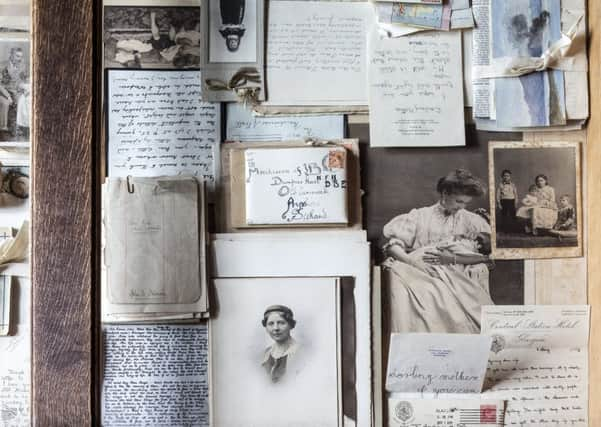Kirsty Gunn: How the new Whitney McVeigh exhibition at Mount Stuart shows us the “other” half of human experience


Rosemary Goring’s brilliant recent archive of a history book, Scotland: Her Story, reminds us that women’s lives make up half of our human experience. Along with all those men waging wars and achieving high office, there were also women running households and bringing up children, conducting intense, private intellectual and creative relationships and lives – speaking for the other 50 per cent of human activity. Her extracts from the letters and journals of women across the social spectrum, from medieval times through to the present day, makes for compelling, eye-opening reading.
Whitney McVeigh’s forthcoming exhibition at Mount Stuart, in association with the Mount Stuart Trust’s Contemporary Visual Arts Programme, provides us with a similar kind of transformatory experience. Who would have known that the grand house of Bute, known for its rather patriarchal presentation of power and prestige, would have quite so much to tell us about the raptures and domestic life of the women who also lived there, along with those husbands with their already well-documented biographies and curricula vitarum? In a ravishingly quiet show of sculpture, concrete poetry, sound and text installation and drawing that traces the lives of two generations of women who lived at Mount Stuart from the middle of the 19th century, McVeigh reminds us that the female world of childcare, household management and family life is every bit as vivid and dramatic as the public sphere with its rants and rows and dramas.
Advertisement
Hide AdAdvertisement
Hide Ad“Quiet” is the right word because, though hidden, perhaps, “These women gave a great deal and had extraordinary lives,” says McVeigh, whose most recent shows reflecting her interest in what she terms “the archaeology of memory” were at the Getty Museum in LA and Kettle’s Yard in Cambridge. For sure, the invisible made visible – the role of the household and the quotidian in our understanding of ourselves as human – has been at the heart of her practice, and here it’s the very fact that this particular aspect of the Bute archive – the keepsakes and writings of its women – has been unknown, and is only now shown to us in fragments and glimpses, that gives this show its force.
In a carefully arranged exhibition of material taken from letters, journals and other ephemera, our eyes and minds are directed towards seeing and contemplating a very different house from the one usually open to the public and available for all to see. Entering this one is more like entering a poem, one made up of intimate gestures and contemplations that appear in different parts of the house, like moments of small revelation.
An open letter to a “Dear Reader” in a brass plate set in the grass as we enter the exhibition is etched with words inspired by Augusta Crichton Stuart – words that also comprise a poem, What is worthwhile Doing in this World, made up of phrases and extracts found by McVeigh in texts she unearthed from the depths of the Bute archive. Drawings by McVeigh, Mother and Child, are shown in a bedroom while letters from Gwendolen Crichton Stuart’s son are sited in a nearby bathroom – “a place of solace for mothers” writes McVeigh, reminding us again of the idea of privacy and intimacy as great maternal and female forces, underpinning and strengthening this calmly revolutionary show.
Whitney McVeigh: What is Worthwhile Doing in this World is at Mount Stuart, Isle of Bute, from 16 March until 26 April. The artist will be in conversation with Charlotte Rostek, Head of Collections at Mount Stuart, and Susanne Calice, Psychoanalyst and Member of the British Psychoanalytical Society, today at Mount Stuart from 3:30-4:30pm, www.mountstuart.com/culture/visual-arts/